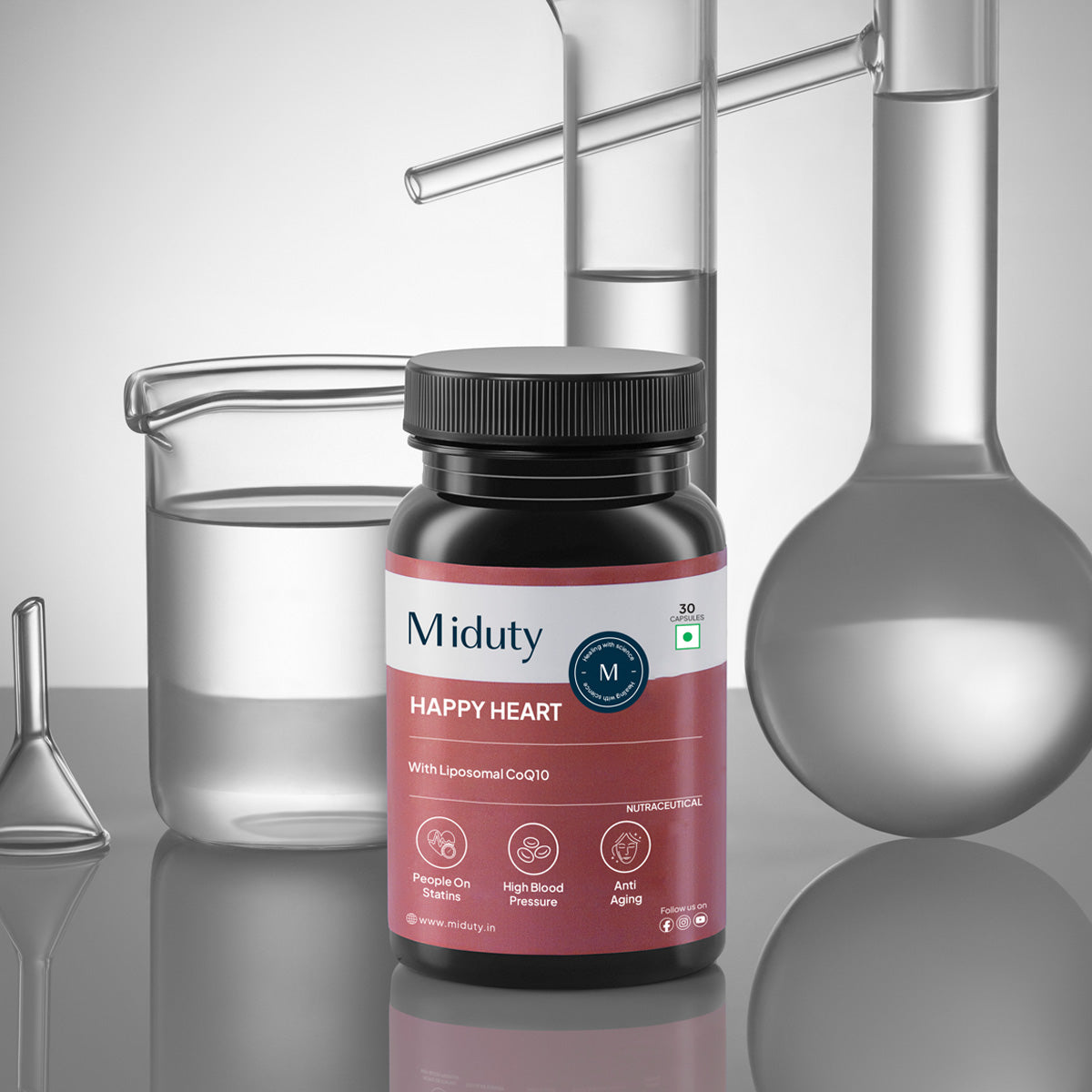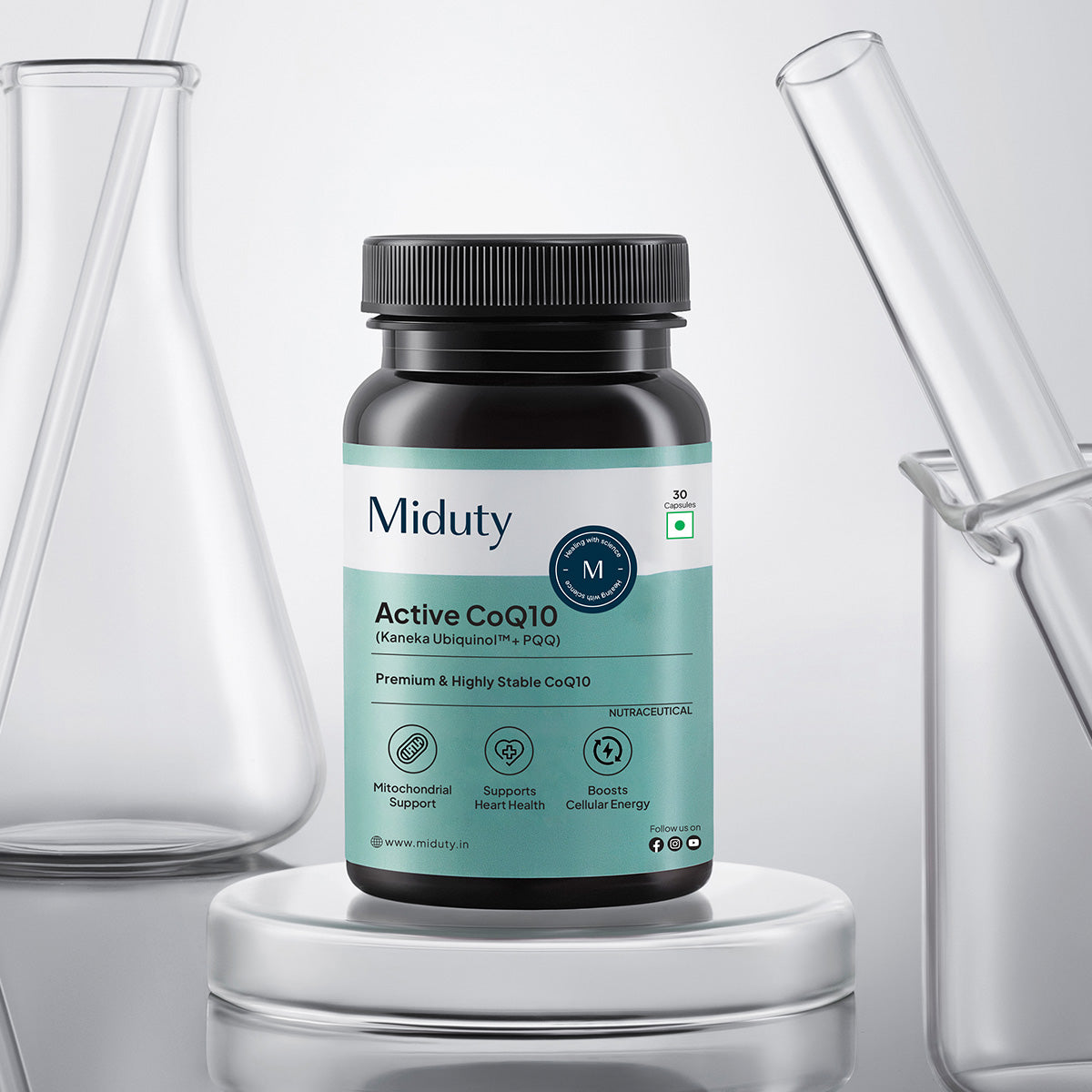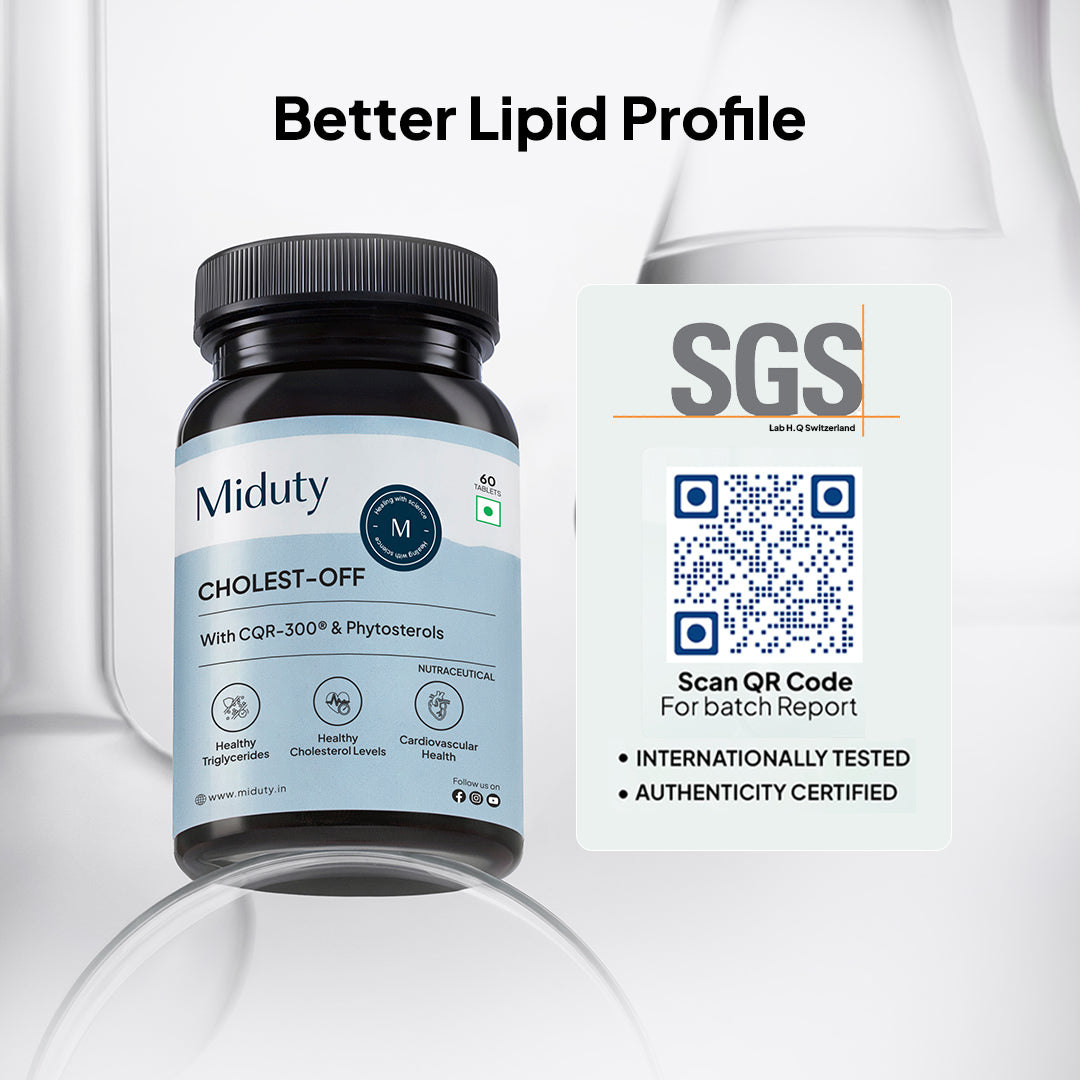
Is Magnesium Good for Your Heart Health: The Connection Between Magnesium and Heart
Key Takeaways
1. Magnesium intake matters: Every 100 mg/day increase can lower heart failure risk by 22% and stroke risk by 7%.
2. Supports heart rhythm and blood pressure: Magnesium helps maintain a steady heartbeat and naturally relaxes blood vessels, reducing hypertension risk.
3. Deficiency is risky: Low magnesium levels can lead to arrhythmias, high blood pressure, and a higher chance of heart disease.
4. Eat or supplement wisely: Leafy greens, nuts, seeds, legumes, bananas, and dark chocolate are rich sources, while magnesium bisglycinate offers high absorption for heart support.
5. Recommended daily intake: Men require 400-420 mg/day, women 310-320 mg/day; combining with vitamin B6 and D improves absorption and cardiovascular benefits.
When it comes to heart health, most people think about cholesterol, blood pressure, or exercise. But there's one mineral quietly working behind the scenes that your heart absolutely depends on: Magnesium. Recent studies have found that people with higher magnesium intake have a significantly lower risk of heart disease, stroke, and hypertension.
Each 100 mg/day increase in magnesium intake reduced heart failure risk by 22% and stroke risk by 7%. [1]
Yet, magnesium deficiency remains surprisingly common, especially in countries like India, where modern diets often lack this essential mineral. So, how exactly does magnesium protect your heart?
The Connection Between Magnesium and Heart Health
Every cell in your body depends on magnesium to function properly, particularly the heart muscle. Magnesium is an essential mineral that supports over 300 biochemical reactions in the body, many of which are directly related to cardiovascular function. It helps regulate heartbeat, muscle contractions, and blood pressure, reduces inflammation, and improves endothelial function (the lining of your blood vessels), making it indispensable for maintaining a healthy heart rhythm.
When magnesium levels drop, your heart becomes more vulnerable to stress. The lack of magnesium causes an imbalance in calcium and potassium levels, which can trigger irregular heartbeats and increase blood pressure. Over time, this can strain the heart muscle and contribute to chronic cardiovascular problems.
A research study shows that for each 100 mg magnesium intake increase, total and ischemic stroke risk dropped 2%; high intake group saw an 11-12% reduction overall. [2]
How Magnesium Supports a Healthy Heart?
1. Regulates Heart Rhythm
Your heart's rhythmic beating is controlled by electrical impulses that depend on balanced electrolyte levels, mainly magnesium, calcium, potassium, and sodium. Magnesium helps regulate these electrical signals, ensuring the heart beats consistently and effectively. A deficiency can disrupt this balance, leading to irregular heartbeats or arrhythmias. By stabilizing cellular activity in cardiac muscles, magnesium keeps your heartbeat strong and steady. This mineral helps stabilize the heart's electrical activity, preventing dangerous rhythm disturbances.
2. Lowers Blood Pressure
Magnesium acts as a natural vasodilator, meaning it helps blood vessels relax and widen. This process reduces the pressure on artery walls, allowing blood to flow more easily and lowering hypertension risk. Studies have shown that people with higher magnesium intake tend to have healthier blood pressure levels. Over time, this reduces the strain on your heart and decreases the likelihood of heart attacks or strokes. It acts like a natural calcium channel blocker similar to certain medications used to treat hypertension, but without the side effects.
A study shows Magnesium at 368 mg/day for 3 months lowered systolic BP by 2 mmHg and diastolic BP by 1.8 mmHg in adults. [3]
3. Reduces Inflammation
Chronic inflammation in the arteries is a major factor in the development of atherosclerosis, the buildup of plaque that can restrict blood flow. Magnesium helps curb inflammation by reducing the production of inflammatory markers such as CRP (C-reactive protein). It also combats oxidative stress by neutralizing free radicals that damage heart tissues. Additionally, magnesium reduces inflammatory markers in the blood, lowering the risk of arterial damage and heart disease progression.
4. Improves Cholesterol Levels
Maintaining balanced cholesterol is key to a healthy heart, and magnesium plays a supporting role here, too. Research suggests magnesium can help increase HDL (good cholesterol) while reducing LDL (bad cholesterol) and triglycerides. This helps prevent plaque formation and improves blood lipid profiles. By promoting healthier cholesterol levels, magnesium indirectly reduces the risk of coronary artery disease and heart blockages.
5. Supports Muscle and Nerve Function
Your heart is a powerful muscle that contracts and relaxes about 100,000 times a day and 2.5 billion times during an average lifespan. [4] Magnesium is essential for this continuous movement because it regulates the flow of calcium and potassium ions within heart muscle cells. It ensures smooth and coordinated contractions without overexertion or spasms. Additionally, magnesium supports nerve transmission, helping the brain and heart communicate effectively for optimal cardiac performance.
Magnesium Deficiency and Heart Risks
A lack of magnesium can silently impact heart health. Symptoms of magnesium deficiency often go unnoticed until they turn as serious heart-related issues, such as: [5]
- Palpitations or skipped beats (arrhythmia)
- Muscle cramps or spasms
- Fatigue and weakness
- High blood pressure
- Poor sleep and stress
- Increased inflammation in arteries
- Higher risk of heart attack and stroke
In fact, studies show that people with chronic magnesium deficiency are up to 50% more likely to develop cardiovascular diseases compared to those with adequate levels. [6]
Best Sources of Magnesium for Heart Health
You can increase your magnesium intake through both diet and supplementation.
Magnesium-rich foods include:
- Green leafy vegetables (spinach, kale)
- Nuts and seeds (almonds, cashews, pumpkin, white sesame seeds)
- Legumes (beans, lentils, chickpeas)
- Avocados and bananas
- Dark chocolate (in moderation) (with at least 70% cocoa)
If your diet falls short, magnesium supplements, especially those formulated with the magnesium bisglycinate in chelated form that can help maintain optimal levels.
Who Should Consider Magnesium Supplements for Heart Health?
You might benefit from magnesium supplementation if you:
- Have high blood pressure or cholesterol
- Experience stress or anxiety frequently
- Have diabetes or insulin resistance
- Take diuretics or heart medications
- Have muscle cramps, fatigue, or sleep issues
These conditions can deplete magnesium levels, making supplementation especially beneficial for heart protection.
Certain people are more at risk of deficiency, including individuals with diabetes, gastrointestinal disorders, or those who consume excessive alcohol or caffeine. Older adults also absorb less magnesium from food, making supplementation more critical for them. Athletes and those with high stress levels may lose magnesium faster through sweat or hormonal imbalances.
Those taking diuretics, proton pump inhibitors (PPIs), or certain antibiotics may also lose more magnesium through urine or reduced absorption.
How Much Magnesium Do You Need Daily?
The recommended daily intake (RDA) for magnesium varies by age and gender:
- Men: 400-420 mg/day
- Women: 310-320 mg/day
Athletes, pregnant women, and people with certain health conditions may require higher doses. [7]
Tips for Maximizing Magnesium Absorption
1. Eating magnesium-rich foods is great, but ensuring your body actually absorbs the mineral efficiently is key. Pair magnesium with vitamin D and B6-rich foods, as these vitamins enhance absorption and utilization.
2. Avoid consuming too much caffeine or alcohol, as they can deplete magnesium stores.
3. Also, watch your calcium intake. While both minerals are essential, too much calcium can compete with magnesium for absorption.
4. Maintaining healthy gut bacteria can improve magnesium absorption, so adding probiotics like yogurt or fermented foods may give your body an extra boost.
5. Hydration supports electrolyte balance, while adequate sleep helps your body recover and regulate mineral levels. Aim for at least 7-8 hours of quality sleep per night and stay hydrated throughout the day.
6. Chronic stress depletes magnesium, so managing it through mindfulness, deep breathing, or meditation is vital.
7. Moderate activities like walking, yoga, or cycling can strengthen your cardiovascular system.
Which Magnesium Supplement Is Better For Your Heart Health?
When selecting a magnesium supplement to support heart health, it's crucial to choose a form that is both bioavailable and gentle on the digestive system. Magnesium bisglycinate, known for its high absorption rate and minimal laxative effect, is particularly beneficial for cardiovascular support. Additionally, combining magnesium with vitamin B6 can enhance its efficacy in regulating blood pressure and reducing muscle cramps. Regular, consistent intake of a reliable supplement paired with a magnesium-rich diet can help regulate blood pressure, support heart rhythm, and reduce stress-related strain on the heart.
Conclusion: Is Magnesium Good for Your Heart Health?
Absolutely yes. Magnesium is one of the most underrated yet essential minerals for a healthy heart. It helps regulate your heartbeat, supports normal blood pressure, maintains healthy cholesterol levels, and prevents arterial stiffness all of which are crucial for cardiovascular wellness. A magnesium-rich diet or supplementation can reduce the risk of hypertension, arrhythmia, and even heart attacks by keeping your heart muscles relaxed and balanced.
However, too little or too much can disrupt normal function. Always consult your healthcare provider before starting supplements, especially if you have existing heart conditions or are on medication.
FAQ's on Magnesium for Heart Health
Q1. Which type of magnesium is best for heart health?
The best type of magnesium for heart health is magnesium bisglycinate, as it's highly absorbable, gentle on the stomach, and effectively supports healthy heart rhythm and blood pressure.
Q2. Will magnesium affect your heart?
Yes, magnesium positively affects your heart by supporting a healthy heart rhythm, regulating blood pressure, and reducing the risk of cardiovascular issues.
Q3. Does magnesium help with heart problems?
Yes, magnesium can help with certain heart problems by improving heart rhythm, lowering blood pressure, and reducing inflammation, supporting overall cardiovascular health.
Q4. Which magnesium do cardiologists recommend?
Cardiologists often recommend magnesium bisglycinate or magnesium glycinate for heart health due to their high absorption and effectiveness in supporting healthy blood pressure and heart rhythm.
Q5. Can too much magnesium damage your heart?
Yes, taking too much magnesium, especially from supplements, can affect the heart by causing irregular heartbeat, low blood pressure, even heart rhythm disturbances, or in severe cases, cardiac arrest, so it's important to stay within recommended doses.
References















